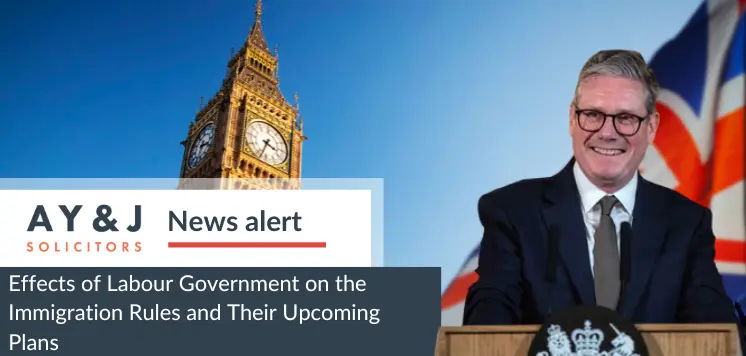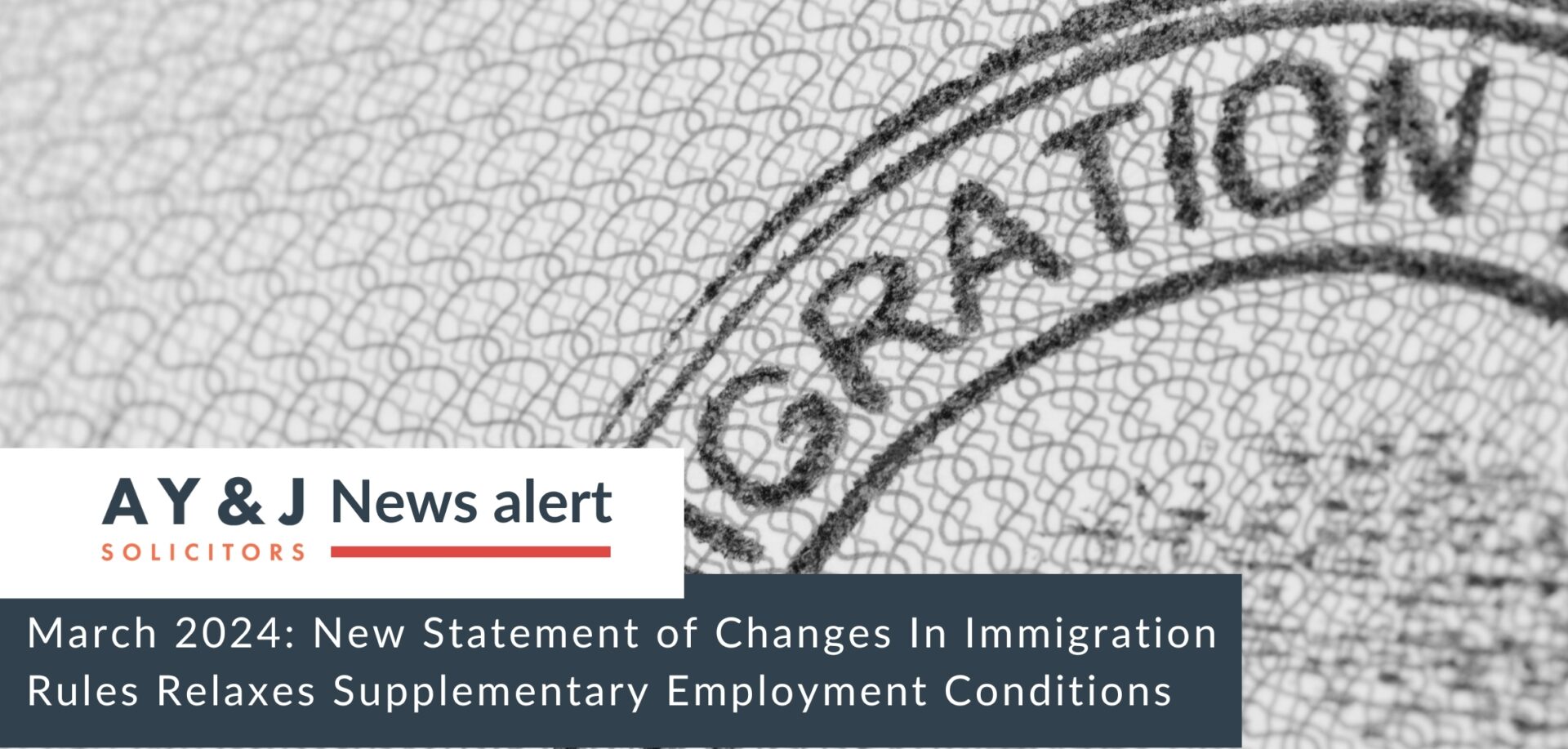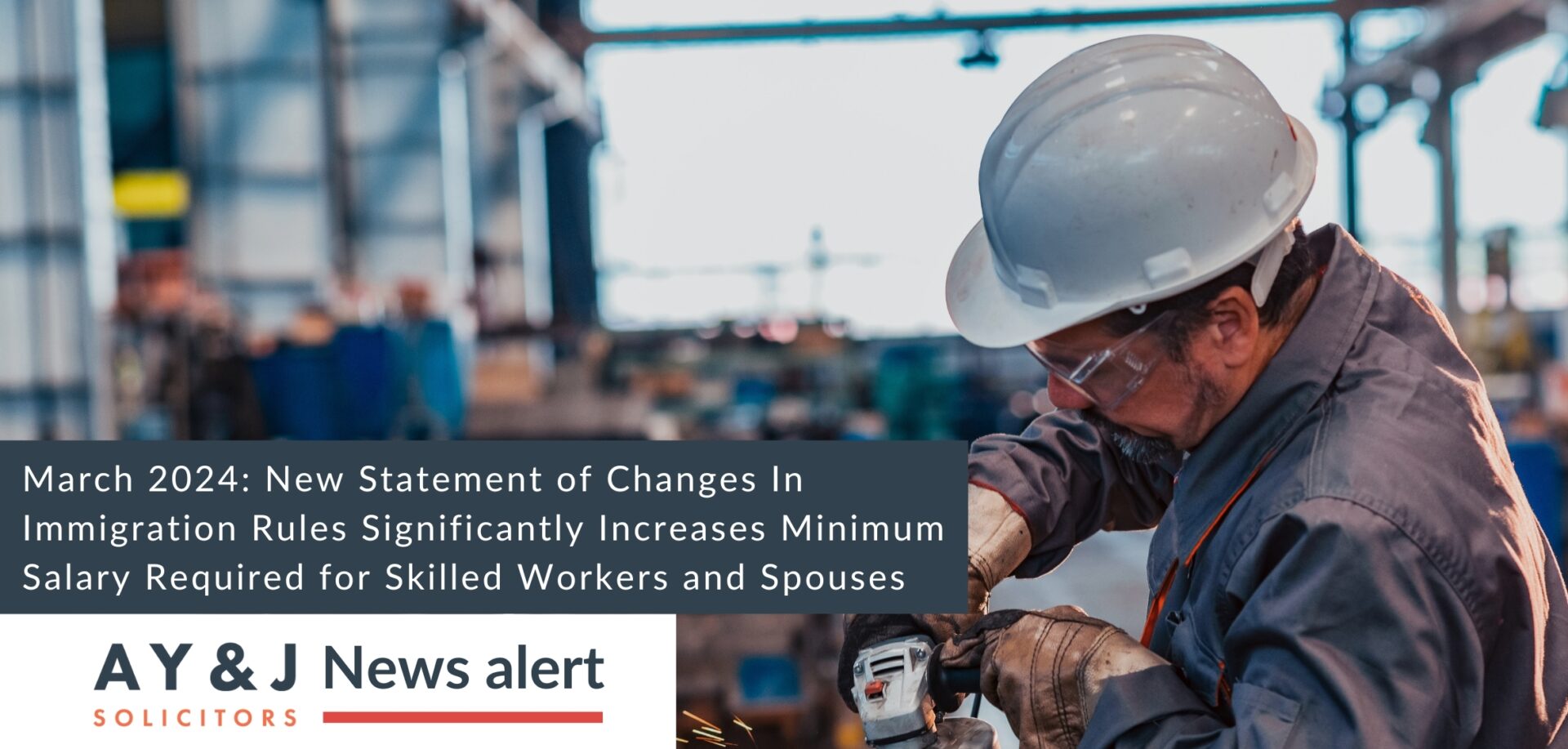With the 2024 UK general election now behind us, businesses across the UK and prospective immigrants from around the world want to understand the likely direction of travel for immigration policy under the new Labour government. Will they stick to their pre-election pledges, adopt a more pro-immigration stance, or defer any substantial changes into 2025 and beyond?
Rwanda policy cancelled
One of the key immigration policy changes already made by the new Labour government is the cancellation of the previous government’s ‘Rwanda policy’. The Rwanda policy would have sent some UK asylum seekers to Rwanda, where their government would assess and decide on their asylum claims. However, on his first day as Prime Minister, Sir Keir Starmer announced that the scheme was “dead and buried”, effectively confirming that it will be cancelled. He referred to the scheme as a “gimmick” that has “never been a deterrent”, which would lead to the deportation of “less than 1%” of small boat arrivals. The government now intends to tackle the problem of dangerous ‘small boat’ crossings to the UK from mainland Europe by launching a new Border Security Command to ensure safe returns and the break up criminal gangs who profit from the trade.
Labour’s Manifesto and the King’s Speech
A key indicator of what we may expect from Labour with regard to immigration policy in the coming months and years is the party’s manifesto. The manifesto emphasised that immigration is “important to Britain” and that “people have come here for generations to contribute to our society and work in our economy and our public services”. It stated its intention to create a “fair and properly managed immigration system” that aligns with the broader economic and social goals of the country.
The three main areas of immigration policy raised in the manifesto were:
- To boost Britain’s skills by joining up civil service systems to spot and tackle skills shortages
- Reform the points-based immigration system, bringing down migration, and
- Implement new powers to ban hiring from overseas for employers and recruitment agencies who break employment law.
These themes were echoed in the King’s Speech, where the government reiterated its commitment to linking immigration policies with national skills development strategies.
What will be the likely impact on business in the UK?
While nothing is concrete yet, Labour has stated it plans to bring down the UK’s reliance on overseas skilled labour whilst boosting the domestic skills base. Clearly, this approach can take many years to come to fruition. For now, the government has no plans to limit business/work visas to the UK. If businesses need to seek skilled labour from another country because they are not available in the UK, they will continue to be able to do so.
It is expected that Labour will likely retain some of the strict measures introduced by the previous Conservative government, such as higher salary thresholds for skilled workers. However, they are also expected to link immigration more closely with domestic skills policy, which could involve new requirements for employers to demonstrate efforts to hire and train UK workers before turning to overseas recruitment. Labour’s policies will have the most impact on sectors such as healthcare, social care, and construction, which have historically relied heavily on labour from other countries.
Some businesses will also be impacted by the need to improve working conditions for UK workers. The new government has promised to enhance working conditions and workers’ rights for those settled in the UK. This includes fair pay proposals and the introduction of employment rights from the first day of employment. These new measures are intended to improve recruitment and boost retention in key sectors facing critical shortages (e.g. social care) and will increase the role of unions within each sector.
The government, as confirmed in the King’s Speech on 17 July 2024, intends to introduce a new Fair Pay Agreement (FPA) specifically for the adult social care sector. Employers who do not comply with these new standards may face restrictions on their ability to recruit workers from overseas. As such, the cost of implementing FPAs may increase the cost of recruiting staff. The model is expected to mirror the ideas of ‘Social Plans’ in Europe, which are used to set pay levels and terminate compensation payments for each sector.
Sectors that do not adhere to workforce plans or pay agreements might see jobs removed from the Immigration Salary List, making it harder for companies in those industries to hire overseas workers.
Strengthening the Migration Advisory Committee (MAC)
Another of the new government’s plans is to strengthen the role of the Migration Advisory Committee (MAC). They want the MAC to be more instrumental in advising on the impacts of immigration policy and ensuring that immigration is tightly aligned with the UK’s economic needs. The intention is for the MAC to work in close conjunction with a newly proposed statutory body, Skills England, which will help to identify skill gaps in the domestic workforce and guide immigration policy to fill those gaps strategically.
Creation of Skills England
Skills England is set to play a crucial role in Labour’s broader strategy to reduce dependency on foreign labour. This new statutory body will focus on enhancing the availability of skills in the UK by identifying critical shortages and working with the MAC to ensure that immigration policies support, rather than undermine, the development of a self-sufficient workforce. The creation of Skills England is a clear signal of Labour’s intent to tackle long-standing issues of domestic skill shortages in a more coordinated and strategic manner.
Stricter fair employment compliance requirements
The government also plans to introduce harsher penalties for employers who fail to uphold fair employment practices (e.g. not meeting national minimum wage rules or health and safety law), which could include extended ineligibility periods for obtaining sponsor licenses. This increased focus on compliance is aimed at preventing the exploitation of migrant workers and ensuring that immigration is managed in a way that benefits both the UK economy and the workers themselves.
Final words
It is expected that most elements of the immigration system will remain unchanged, at least for now. Sponsor licences and work visas will still be available. Labour has also indicated that they will continue the restriction on most overseas students bringing dependant family members to the UK. Additionally, the government will maintain the increased salary thresholds for Skilled Worker visas, which were introduced to ensure that migrant workers are not paid less than their UK counterparts.
The key message for businesses and prospective immigrants to the UK is that the new government’s approach will be a balancing act between reducing the UK’s reliance on foreign labour and addressing the immediate needs of the economy. While some policies will continue the strict measures introduced by the previous government, Labour’s emphasis on linking immigration with skills development marks a shift towards a more sustainable, long-term strategy.
Over the next few months and years, we will get a better feel for how these policies play out and whether they achieve the desired balance of economic growth and social fairness. For now, all eyes are on the government as it begins to implement its new plans for immigration reform. We will keep you fully up to date with any changes as they are proposed.
A Y & J Solicitors is a specialist immigration law firm with extensive experience with all types of visa applications. We have an in-depth understanding of immigration law and are professional and results-focused. For assistance with your visa application or any other UK immigration law concerns, please contact us on +44 20 7404 7933 or at contact us today. We’re here to help!









